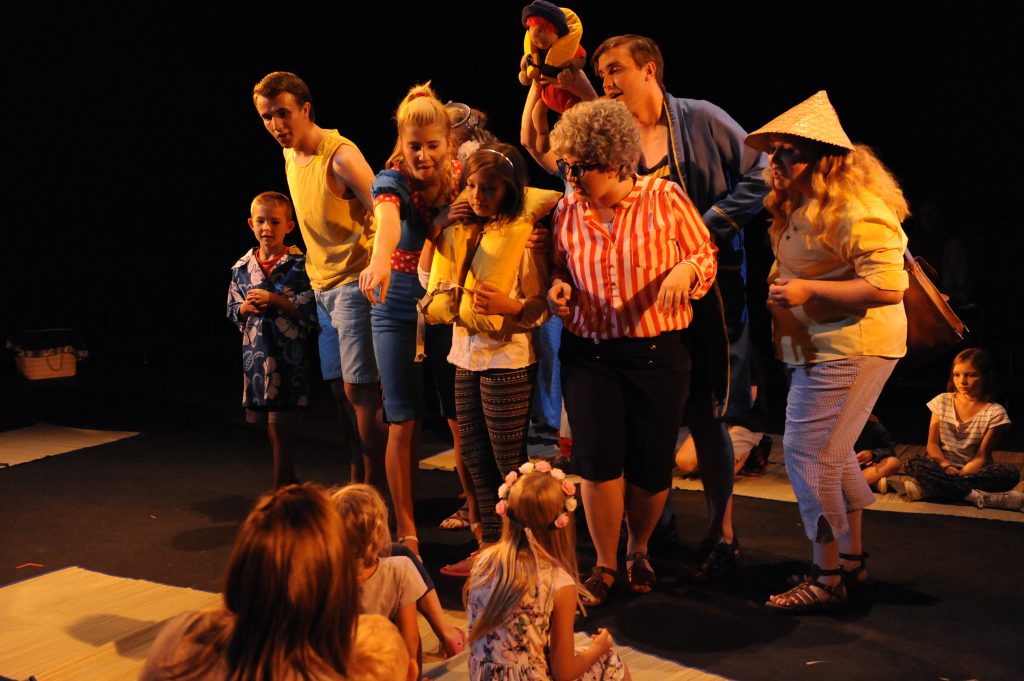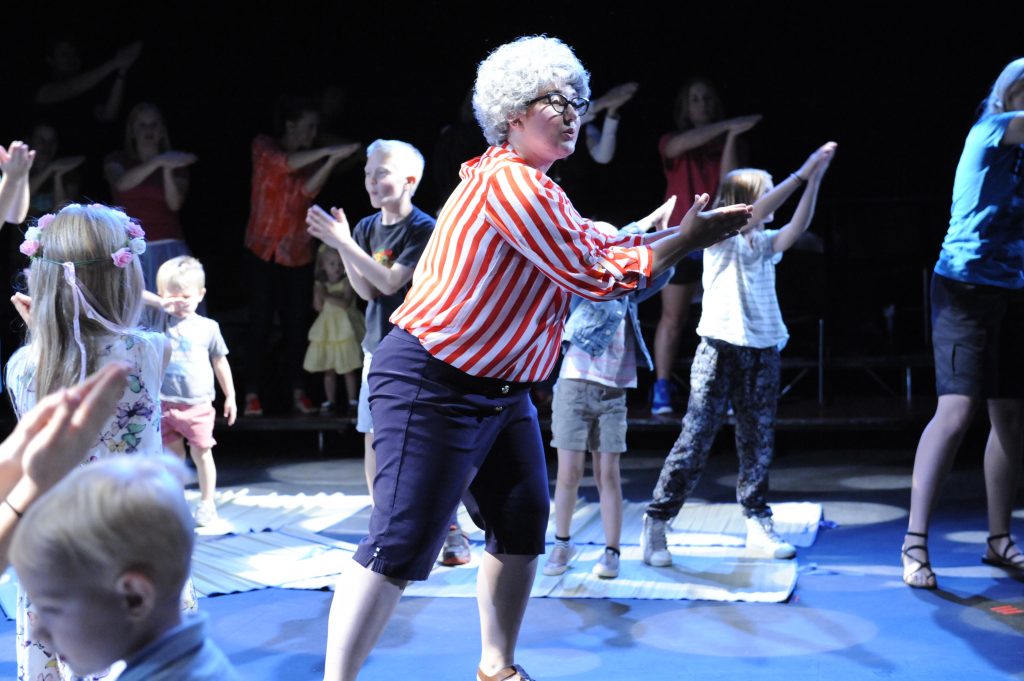
The world’s the stage for performers of BYU’s Young Company, and the theatrics don’t stop when visiting school cafeterias packed with squirming children.
The drama company has traveled to elementary schools across Utah over the last 40 years, introducing thought-provoking dramas to its young audiences.
“It takes a great deal of technique to be able to hold 500 kids in the palm of your hand with nothing more than a speech from Shakespeare and a little bit of costume,” Young Company script adaptor Teresa Love said.
Most drama companies invite the audience into a different world as they enter the theater, but the Young Company goes to its audience and turns a familiar cafeteria or assembly hall into something new.
Actors suit up and head to a different school twice a week all semester long. There, they perform a show followed by interactive workshops. This semester’s production is “Cyrano,” adapted from Edmond Rostand’s “Cyrano de Bergerac.”
“Cyrano” director Kris Jennings said Young Company’s performances are often young students’ first exposure to live theater. She said every performance’s goal is to create a “magical moment” young audiences will remember.

Artistic director Julia Ashworth said the main purpose of the workshop is to help students think thematically and connect the drama to their own lives. This teaches them how to respond to and speak about artistic experiences.
Tour preparation starts long before the season opens by choosing the script and modifying it for a young audience. The Young Company selects one Shakespeare piece and one contemporary piece every year with two criteria: each play will challenge the kids to think and engage, and it will do no harm.
“There’s plenty of art and literature that is disturbing, that’s around them all the time,” Love said. “So whatever we bring, it can be challenging, it can even be dark, but it needs to have our understanding that they are children of God and we are children of God, and the discussion needs to work under that premise.”
Love does most of the adapting herself, but this fall’s script for “Cyrano” came pre-adapted for young audiences. She said adapting for children is interesting because writers have to work with shorter attention spans and less experience, but not less intelligence.
Love said she balances several priorities while adapting to help the show run well.
“I want to honor the source material,” Love said. “I want to make sure that the story isn’t watered down, but also doesn’t harrow up their souls.”
Working together and interacting at the shows stretches both the actors and the students. Actors face challenges like helping to write the script, dealing with less-than-ideal staging and acoustics in school auditoriums and keeping the kids focused.
Arianna Krenk, a cast member of last year’s “Water Sings Blue,” said the Tuesday and Thursday tours can be a large time commitment and a dramatic change from more typical roles, but they’re a worthwhile sacrifice.
Even the inherent interactive nature of the performances was daunting at first, Krenk said.
“The very first show, we walked out there, and I had an internal little panic because I’m making eye contact with people,” Krenk said. “Normally, the actor ignores the audience. You just don’t look at them. They’re not there, and they know they’re not there, but with the kids you’re wanting them to talk, you’re wanting them to interact. I personally had to learn to work with that, and to stay in character while looking at everyone.”
After all the practice and effort, Young Company members walk away from their performances and workshops hoping they made a difference in the lives of their audiences, Love said. The hope is that the performance becomes a highlight of the school year and that students go home inspired.
Ashworth said the ultimate goal is to unpack the theatrical experience for the kids.
“It’s really important to us that they understand that theater isn’t just fun, and it’s not just cute, and it’s not just something to watch and leave, but that it’s something that can change lives,” Ashworth said.




